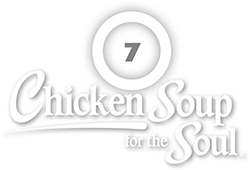 Leaving My Baggage Behind
Leaving My Baggage Behind
No baggage — there was the secret of existence.
~Robert Louis Stevenson, The Wrecker
The winter had been long and brutal. I desperately needed a break, so I decided to book a last-minute trip to the Caribbean with a friend. My trip was just three days away, and it consumed my every thought.
I was planning to pick up some things for the trip during my lunch break, but at around 12:30 p.m., the company president came to my desk and asked to speak with me in the boardroom.
At first, I didn’t think anything of it, but as I entered the room and saw the human-resources manager already seated, I knew it couldn’t be good. Just months shy of my ten-year anniversary with the company, I was laid off.
As I left the office with an overflowing bag of my belongings, I was in complete shock — too shocked to even cry. I wondered how they could do this after everything I had done for them.
Canceling my trip wasn’t an option, as I needed it now more than ever. But instead of picking out a nail colour for my pedicure or buying a new hat for the beach, I spent the next two days updating my résumé and standing in line to file a claim for unemployment insurance.
The night before my trip, I had a dream that my friend came to pick me up to go to the airport. I had two suitcases at the door — one that was packed and another that was empty. When I got to the airport, I realized that I had brought the empty one.
When I woke, I interpreted this dream to mean that I was leaving all of my “baggage” behind — and I did. I enjoyed and appreciated my vacation more than any others I had taken. And while I usually feel depressed about returning from a trip, I wasn’t this time. Having had time and distance from my work break-up and a dream about getting rid of my old baggage, I was looking forward to returning and starting the next chapter of my life.
I knew I wasn’t going to land a position in my narrow, competitive field right away. So when I wasn’t working on my job search, I got back into doing one of the things I loved but never had the spare time to do: write. At the company where I worked, I was able to write, but it was ghostwriting. My president’s name and picture were always attached to my work.
I had never been published under my own name before, but I wanted to try. I wrote a few pieces and sent them out to magazines and newspapers. Most amateurs would approach smaller publications, but I didn’t. I swung for the fences and sent them to the bigger, well-known ones. No guts, no glory, right?
After several non-responses and rejections, my gamble paid off. The most-read newspaper in Canada agreed to publish one of my travel stories. I couldn’t have been more thrilled.
I told my family and friends about my piece coming out but didn’t know the full magnitude of it until after it was published. People I hadn’t talked to in years contacted me to let me know they read my story. There was even a “Letters to the Editor” section that was published a few weeks later based entirely on feedback from my article. How flattering.
When I started writing after I got laid off, I did it because I liked it. What I didn’t realize was that my first published story would open several important doors for me.
Being published in a major publication looked impressive on my résumé and led to interviews for writing positions at well-known organizations. It also led to more publications taking notice of the articles I submitted.
I am happy to say that now I work full-time as a corporate writer and have been published in a number of North American magazines.
Getting laid off was a life-altering experience for me that could have been devastating. I will be the first to admit that it was difficult to go through financially, emotionally, and socially. But there was something about that dream I had after it happened. That dream, in which I happily carried on with an empty suitcase, helped me put everything behind me and gave me the confidence to pursue new ventures.
— Debra Rughoo —